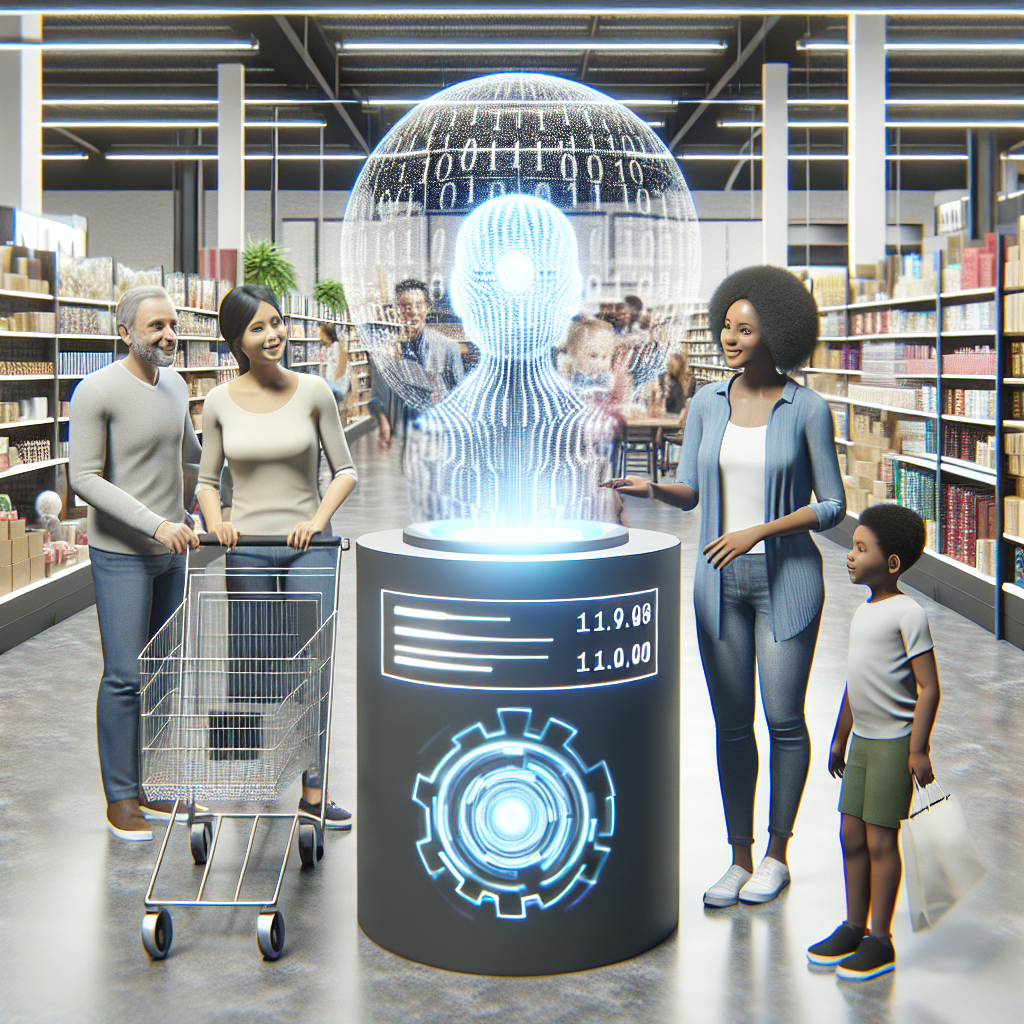AI Software: A Game Changer for Retail Industry
Artificial Intelligence (AI) has been transforming various industries worldwide, and the retail sector is no exception. AI software is revolutionizing the way retailers operate, making processes more efficient, enhancing customer experiences, and boosting sales. From personalized recommendations to inventory management, AI is reshaping the future of retail. In this article, we will explore how AI software is changing the game for the retail industry and the benefits it brings.
Benefits of AI Software in Retail
1. Personalized Customer Experiences: AI software enables retailers to create personalized experiences for customers by analyzing their preferences, behaviors, and purchase history. By using AI-powered recommendation engines, retailers can suggest products that are tailored to each customer’s individual needs and interests, thereby increasing customer satisfaction and loyalty.
2. Inventory Management: AI software helps retailers optimize their inventory management processes by predicting demand, identifying trends, and automating replenishment. By analyzing historical sales data and external factors such as weather patterns and economic conditions, AI can help retailers optimize their inventory levels, reduce stockouts, and minimize overstocking.
3. Operational Efficiency: AI software can automate routine tasks such as data entry, order processing, and customer service, freeing up employees to focus on more strategic tasks. By streamlining operations and reducing manual errors, AI software can improve efficiency, reduce costs, and increase productivity.
4. Fraud Detection: AI software can help retailers detect and prevent fraudulent activities, such as payment fraud, account takeovers, and identity theft. By analyzing patterns and anomalies in customer behavior, AI can identify suspicious activities in real-time and alert retailers to take action.
5. Predictive Analytics: AI software enables retailers to forecast sales, trends, and customer behavior with greater accuracy. By analyzing historical data and external factors, AI can help retailers make data-driven decisions and plan for future demand, promotions, and inventory levels.
6. Enhanced Customer Service: AI-powered chatbots and virtual assistants can provide 24/7 customer support, answer queries, and offer personalized recommendations. By using natural language processing and machine learning algorithms, AI chatbots can simulate human-like interactions and improve customer satisfaction.
FAQs
Q: How can AI software help retailers improve their marketing strategies?
A: AI software can help retailers improve their marketing strategies by analyzing customer data, predicting trends, and identifying target audiences. By using AI-powered tools such as predictive analytics and personalized recommendations, retailers can create targeted marketing campaigns that resonate with customers and drive sales.
Q: Is AI software expensive for retailers to implement?
A: The cost of implementing AI software varies depending on the complexity of the solution and the size of the retailer. However, many AI software providers offer scalable solutions that can be customized to meet the needs and budget of retailers. Additionally, the long-term benefits of AI software, such as increased sales, improved efficiency, and enhanced customer experiences, often outweigh the initial investment.
Q: How can retailers ensure the privacy and security of customer data when using AI software?
A: Retailers must prioritize data privacy and security when using AI software to protect customer information from unauthorized access or misuse. By implementing robust data encryption, access controls, and compliance with data protection regulations, retailers can safeguard customer data and build trust with their customers.
Q: What are some examples of AI software used in the retail industry?
A: Some examples of AI software used in the retail industry include:
– AI-powered recommendation engines that suggest personalized products to customers based on their browsing and purchase history.
– Predictive analytics tools that forecast sales, trends, and customer behavior to help retailers make data-driven decisions.
– Chatbots and virtual assistants that provide 24/7 customer support and answer queries in real-time.
– Fraud detection algorithms that identify and prevent fraudulent activities, such as payment fraud and identity theft.
In conclusion, AI software is a game-changer for the retail industry, offering retailers a wide range of benefits such as personalized customer experiences, optimized inventory management, operational efficiency, fraud detection, predictive analytics, and enhanced customer service. By leveraging AI-powered tools and technologies, retailers can stay ahead of the competition, drive sales, and improve customer satisfaction in today’s competitive market.

